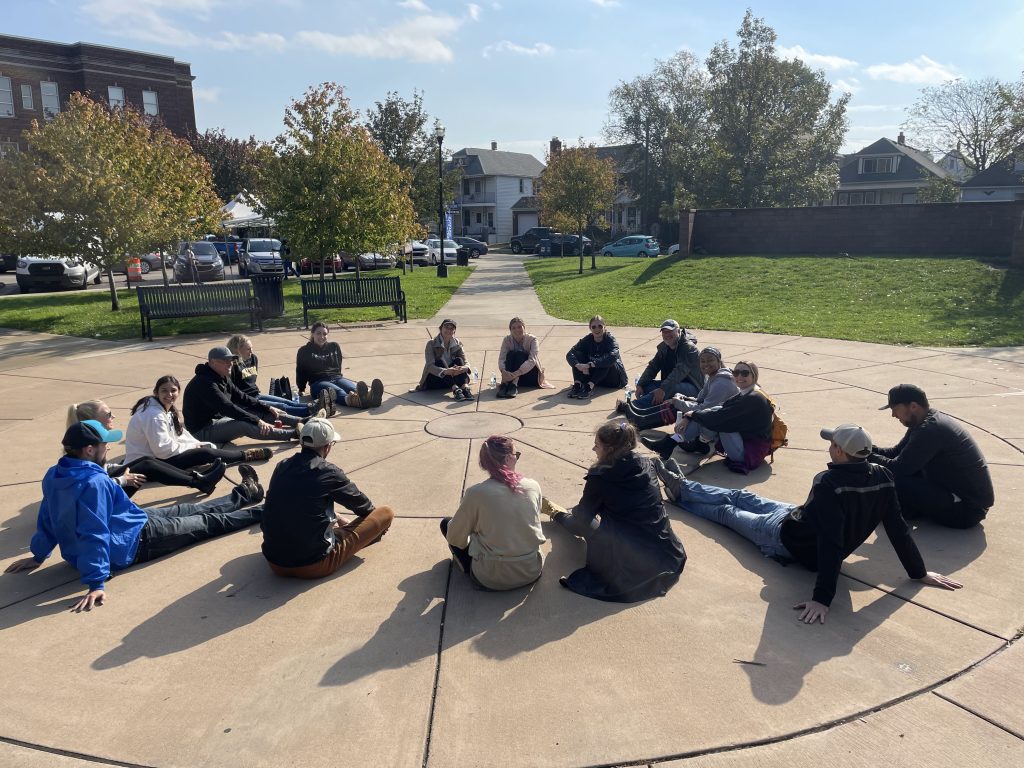Employee giving and volunteering programs aren’t just a check the box exercise. They’re incredibly powerful for attracting, keeping, and growing talent – which is fantastic for business!
This is especially important today, as we find ourselves amidst the Great Resignation. Around the world, the pressure is on employers to find ways to transform their corporate cultures to meet the career needs of workers, but also to be positive influences on their communities.
There is a growing demand for competitive benefits that go beyond the standard that employees have come to expect – like paid leave, health insurance, and retirement plans. Employee giving and volunteering programs not only benefit businesses and people, but they are also far less common, which makes them perfect for setting your business apart.
At Kinesso and Matterkind, we see giving back as a core element of our corporate culture. As well as regular fundraisers and events, we have a dedicated week each year where all employees can take paid time off to volunteer for causes they’re passionate about.
To help illustrate the tangible business benefits of an effective employee giving and volunteering program, we’ve pulled together some interesting research as well as responses from our recent anonymous Kinesso and Matterkind employee survey.
So, what are five of the tangible business benefits of an effective employee giving and volunteering program?
Talent attraction
There are currently millions of job openings across the global economy. In fact, findings from the Q4 2021 ManpowerGroup Employment Outlook Survey show that employers in 14 countries (the U.S. and UK included) have the highest-ever hiring plans since the survey began in 1962. In addition, 69% of employers report difficulty filling vacancies – a 15-year high for the second consecutive quarter.
Employee giving and volunteering programs can be a real differentiator and an attractive reason to join an organization. Even in 2016, before the COVID-19 pandemic, 58% of employees would consider social and environmental commitments when deciding where to work, and 55% would choose to work for a socially responsible company even if the salary was less.
Today, the demand for purpose has grown even stronger. According to Edelman Trust, “the employee is now as belief-driven in selecting and staying with a company as a consumer is in buying and sticking with a brand.”
Employee retention
At Kinesso and Matterkind, our teams have been involved in a wealth of impactful activities – from charitable walks, tree planting, and volunteering for charities, to the donation of food, clothes, and money to social causes. When we invited employees to provide feedback on what giving, volunteering, and awareness-raising activities mean to them, a similar sentiment was clear throughout most responses: giving back is necessary and rewarding.
“For me, it means passing on some of the many blessings I have received in my life and to complete the purpose of man which is to care for the people and world around us,” one employee shared.
“It feels good to make the world better than it was before me,” said another.
“Making a small impact to improve someone’s life is incredibly rewarding.”

Connection creation
Time set aside for employees to create connections and build relationships with their co-workers is never time wasted. HBR research during the pandemic found that workers around the world place a higher priority on having a “good relationship with coworkers” than on many other job attributes.
In our internal employee feedback survey, several respondents commented on how our corporate initiatives helped them bond with their team. “It felt great to give back, volunteer my time and bond with my team,” said one volunteer who took part in our tree planting project with Greening of Detroit.
For workforces that are split across different regions or where many people continue to work remotely, volunteering events are a brilliant way to bring people together.
Ethan Chamberlin, EVP of Matterkind, who organized the Greening of Detroit event, said: “It was a great opportunity to help the community and meet more of the new team members hired during the pandemic. We had a group lunch in a local park following the event and got to spend some additional time getting to know each other.”
Skill development
Giving and volunteering programs also empower employees to learn new skills and potentially develop their leadership skills by taking charge of an event, organizing information for the team, or leading sub-committees. Events that bring people together across all levels give colleagues in non-leadership roles the opportunity to develop and display their talents.
Volunteering is also a safe place to try out new skills, to dig into tasks and opportunities that may be more intimidating in a work setting. This can work wonders for a person’s confidence, and in return they will bring those newly developed leadership skills back to their workplaces, as well!
Mental and emotional wellness
In a UnitedHealth Group’s study, Doing Good is Good for You, 93% of respondents reported an improved mood, 79% reported lower stress levels, and 88% reported increased self-esteem by giving back. While this research was done pre-pandemic, it’s more relevant than ever. One of the key reasons many say we are in the middle of the Great Resignation is because employees are no longer willing to compromise their mental and emotional well-being for their employers.
In a time where employers are looking to differentiate themselves from the competition, employee giving and volunteering programs are a great way place to start. Not only are they good for business, but they make for happier, healthier employees and better communities. That’s a win for everyone.
